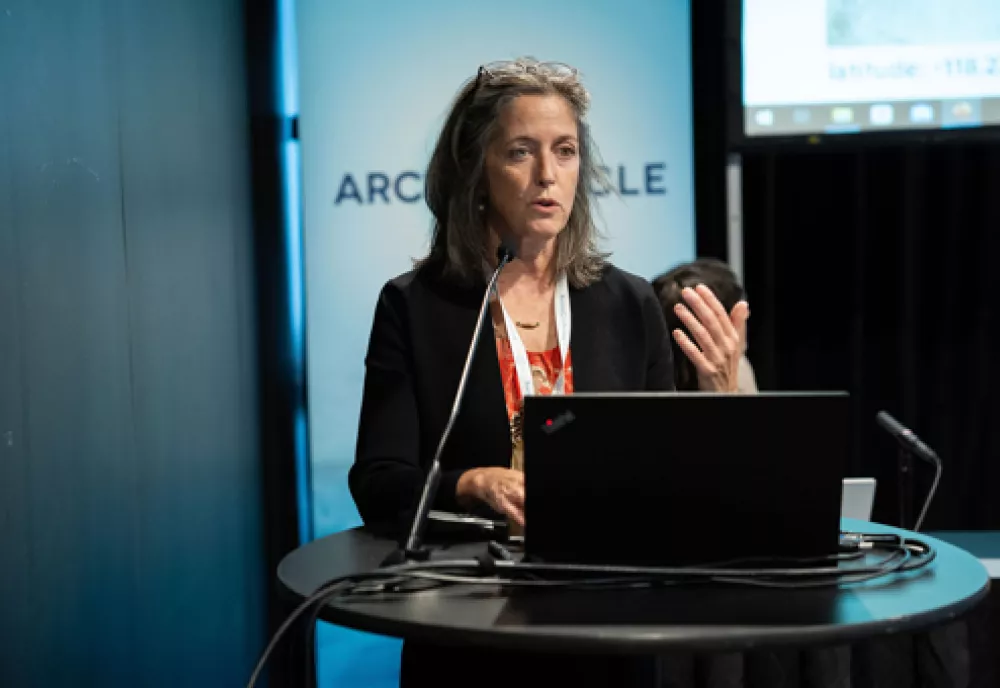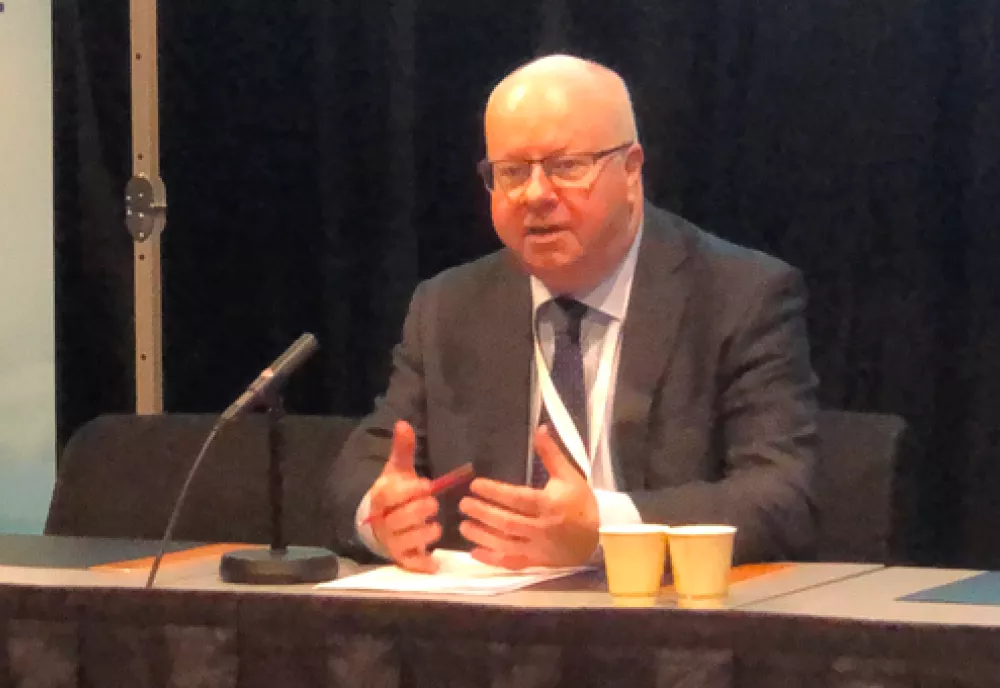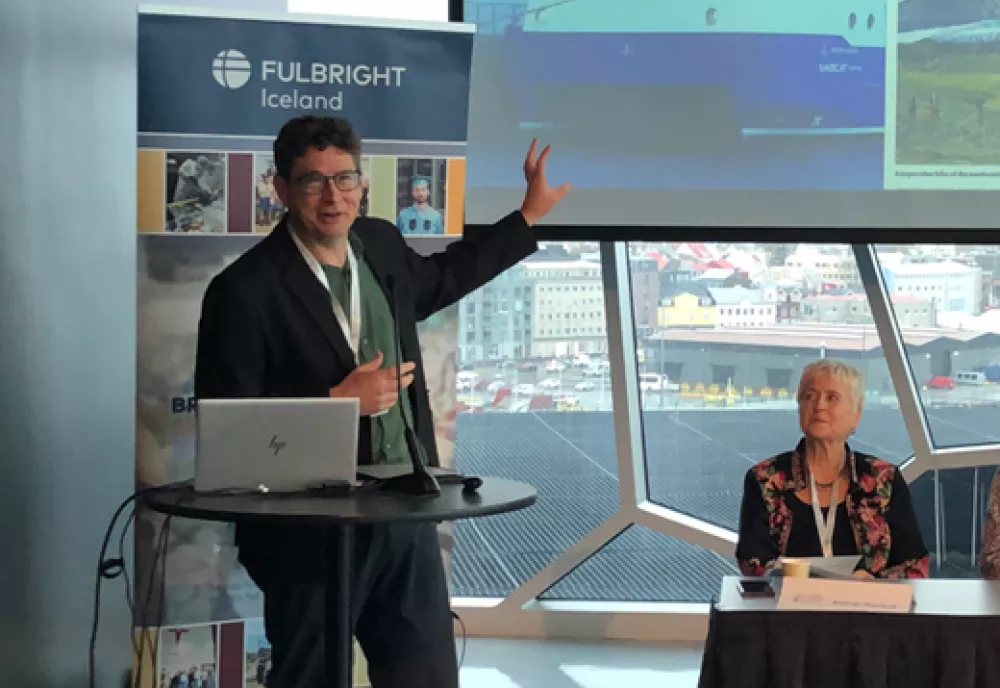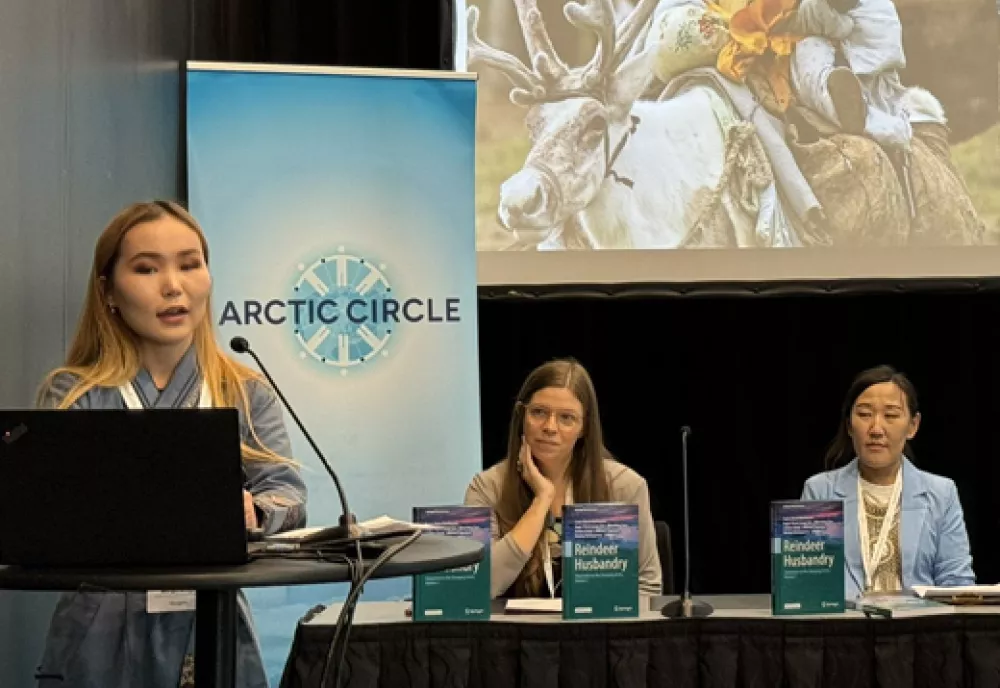Greetings,
The Arctic Initiative embodies the Belfer Center’s mission – which stands at the nexus of science, technology, environmental policy, and international affairs. I had the opportunity to join the Arctic Initiative team in Reykjavik, Iceland for the 2023 Arctic Circle Assembly, and I had a front-row view of how our work is directly shaping knowledge production and policy development on Arctic issues. I also had the pleasure of participating in the Arctic Innovation Lab, which highlights exceptional students bringing forward unique solutions to address pressing Arctic challenges.
As I reflect on how the dialogue elevated at this convening can influence ongoing policy debates inside and outside the Arctic, a couple of themes stood out. First, that despite a narrative that “Arctic exceptionalism is dead” – following Russia’s invasion of Ukraine and the subsequent pause on Arctic Council functions – most participants at the Assembly appeared to reject this notion and demonstrated instead a commitment to continued collaboration amid global geopolitical tensions.
The second is the importance of shared knowledge: both in terms of co-production of knowledge, as researchers partner with Indigenous communities to make sense of the changing Arctic, as well as the need to inject lessons being learned in the Arctic into the global effort to tackle climate change effects. Ideas being developed in the Arctic are not staying in the Arctic; they have the potential to catalyze solutions for climate adaptation, mitigation, and resilience elsewhere in the world.
The Belfer Center is proud that the Arctic Initiative is playing a critical role in developing such shared knowledge and innovative solutions, in collaboration with partners around the world. Congratulations to our team for another successful trip to Reykjavik! The work continues…
Natalie Colbert
Executive Director, Belfer Center for Science and International Affairs
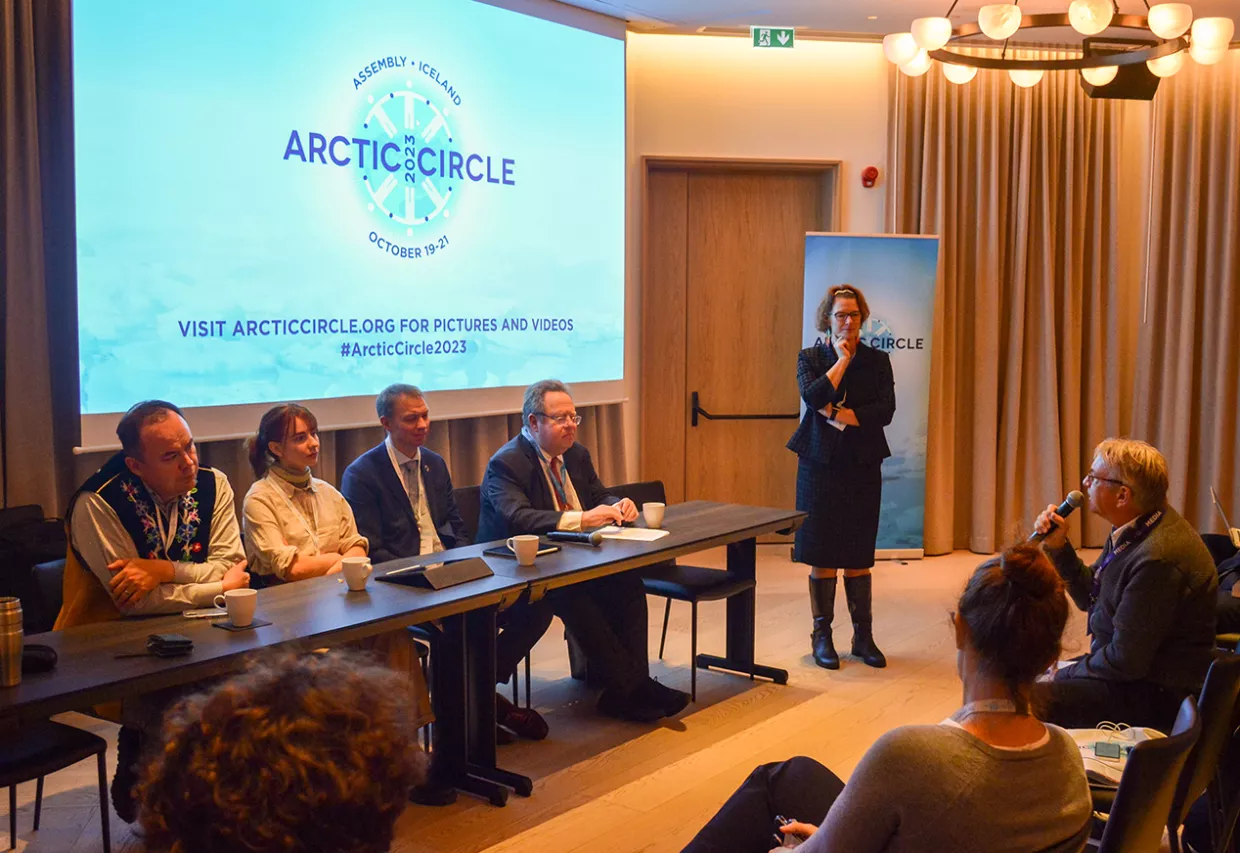
Charting a Course for Arctic Cooperation
Since the relationship between Russia and the other Arctic states irreversibly shifted after the invasion of Ukraine, it has become clear that the Arctic Council, the leading intergovernmental forum in the region, cannot return to “business as usual.” Yet critical, time-sensitive issues, such as climate science and emergency management and response, demand cooperation among the Arctic states, who remain committed to the Council as their preferred mechanism for cooperation despite the current challenges.
The Arctic Initiative, together with the Fridtjof Nansen Institute, the Center for Ocean Governance at the Norwegian Institute of International Affairs, and the Wilson Center’s Polar Institute, organized a panel to share recommendations for advancing working-level cooperation within the Arctic Council in light of ongoing geopolitical tensions. The recommendations were developed for the Norwegian Chairship of the Arctic Council and the U.S. State Department during a multi-day workshop held at Harvard Kennedy School in September.
Panelists advised Arctic leaders and Arctic Council officials to:
- Allow the Arctic Council’s Working Groups to further projects that align with the Arctic Council’s Strategic Framework, the Norwegian Chairship’s priorities, and the Working Groups’ strategic plans. Working Groups are not only one of the few parts of the Council that can be active in the current circumstances, but the research synthesis and science-policy translation functions they perform are crucial.
- Find ways to make participation in Working Groups more accessible for Indigenous participants, whose involvement is at risk now that Council-wide meetings have halted. While all state-level representatives cannot be in the same room, Indigenous participants could conduct more outreach (so long as it remains safe), but this will require more resources.
- Make space for and support activities of other institutions that can focus on the issues that the Arctic Council is unable to prioritize. Discern which working-level activities can be done through the Arctic Council under the current circumstances and which cannot. Encourage and support other Arctic and international institutions to advance work, where appropriate.
The full recommendations from the workshop will be published as a Belfer Center policy brief later this year.
Grappling with the Arctic Methane Curveball
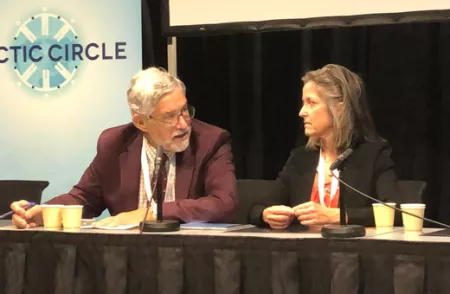
Our Co-Director John Holdren took part in a sobering panel on Arctic methane emissions and their global climate impacts, organized by the Wilson Center's Polar Institute in collaboration with Woodwell Climate Research Center and Sandia National Laboratories. The key takeaways are below:
- Arctic permafrost contains twice as much carbon as is currently in the atmosphere. Due to rapid warming, that carbon is being released from thawing permafrost as carbon dioxide and methane.
- Estimates of current and future carbon emissions across the Arctic have considerable uncertainty. Methane is 30 to 80 times more potent as a greenhouse gas than carbon dioxide, so understanding what fraction of the carbon emitted from permafrost comes out as methane is important.
- Despite this uncertainty, even middle-of-the-road (i.e. not worst-case) projections for methane emissions from permafrost thaw could put global carbon targets out of reach.
- Existing national methane policies and international commitments focus entirely on direct methane emissions from human activities; inclusion of emissions from natural sources such as permafrost has been largely absent from policy.
- The only currently proven way to slow the growth of emissions from permafrost is to slow global warming itself by reducing society’s direct emissions of greenhouse gases.
Gallery
Climate Justice, Permafrost Thaw, and Community Based Observations
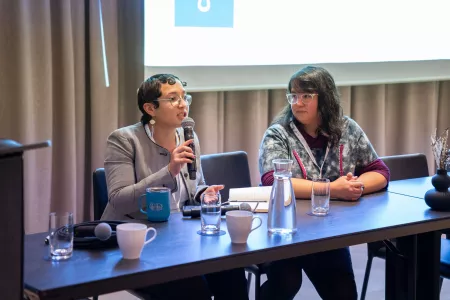
Permafrost thaw is increasingly forcing communities to make difficult and urgent decisions about where and how to live. Woodwell Climate Research Center, our Permafrost Pathways project partner, organized a session with the Svalbard Integrated Arctic Earth Observing System and Arctic PASSION to explore challenges to and opportunities for the co-creation of equitable research and community-led adaptation planning. Key takeaways:
- Approaches that are led by affected communities are far more likely to result in successful adaptation to permafrost thaw.
- Centering Indigenous voices in Arctic science research and policy is a justice issue.
- When researchers come into a community, building relationships and demonstrating respect are essential first steps. Community liaison officers can facilitate communication between researchers and communities, which is key to creating and maintaining trust.
Visit permafrost.woodwellclimate.org to learn more about Permafrost Pathways and subscribe for project updates.
Drawing Lessons from the Arctic Pandemic Experience
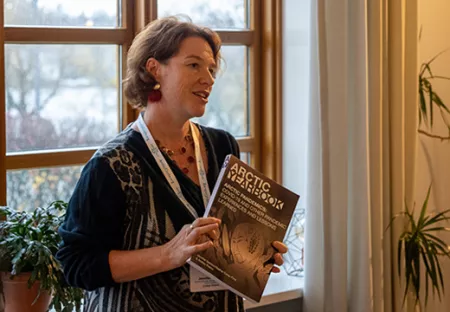
The Embassy of Canada to Iceland held a special reception to celebrate Senior Fellow Jennifer Spence, along with co-editors Heather Exner-Pirot, Andrey Petrov, and Lassi Heininen, for their work on a special Arctic Yearbook journal issue on the impacts of and responses to the COVID-19 pandemic in the Arctic.
COVID-19 in the Arctic: Quick Facts
- Mortality rates generally remained below respective national levels, despite pre-existing vulnerabilities faced by Arctic communities (remoteness, limited healthcare options, underlying health issues, and other compounding factors) (Petrov et al).
- Inuit communities buffered the social, economic, and mental health impacts of the pandemic with culturally grounded strategies - for example, harvester programs provided gasoline to hunters and trappers so they could harvest and distribute food for communities as emergency relief (Long et al).
- The pandemic aggravated existing gender inequalities in the Arctic, and Arctic women continue to face disproportionately negative impacts such as elevated unemployment, increased unpaid care, heightened risk of domestic violence, and greater exposure to COVID-19 (Rozanova-Smith et al).
Stuart Harris Recognized for Emergency Medical Care Work in Alaska
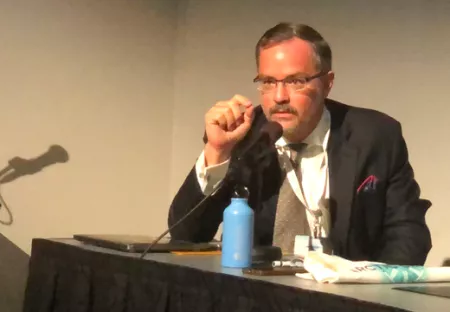
Faculty Affiliate Dr. Stuart Harris was recognized as a finalist for the 2023 Frederik Paulsen Arctic Academic Action Award in a ceremony at the Assembly. Together with colleagues from the Maniilaq Association, Dr. Harris is working to create a program of health monitoring in the Alaska's Northwest Arctic Borough to help quantify and qualify the impacts of climate change on human health and to provide evidence for health-informed decision-making. Congratulations, Dr. Harris - we are so proud of you!
One Health, One Arctic, One Community
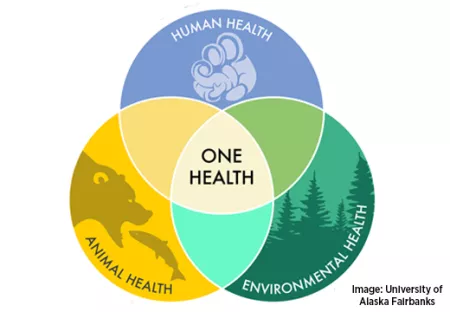
Faculty Affiliate Stuart Harris led a session, co-organized with the University of Oulu and UArctic, on how climate change is undermining the nexus of human, animal, and environmental health in the Arctic.
- One Health is a holistic approach that recognizes the interdependence of humans, animals, and ecosystems; the well-being of all leads to improved health outcomes and enhanced resilience.
- Climate change is a healthcare emergency: in the Arctic, rapid warming is exacerbating pre-existing health inequities and introducing novel threats to health, particularly among rural and Indigenous populations.
- Because the Arctic is warming 3-4 times faster than the global average, threats to human health in Arctic populations are an indicator of threats to come in more temperate latitudes.
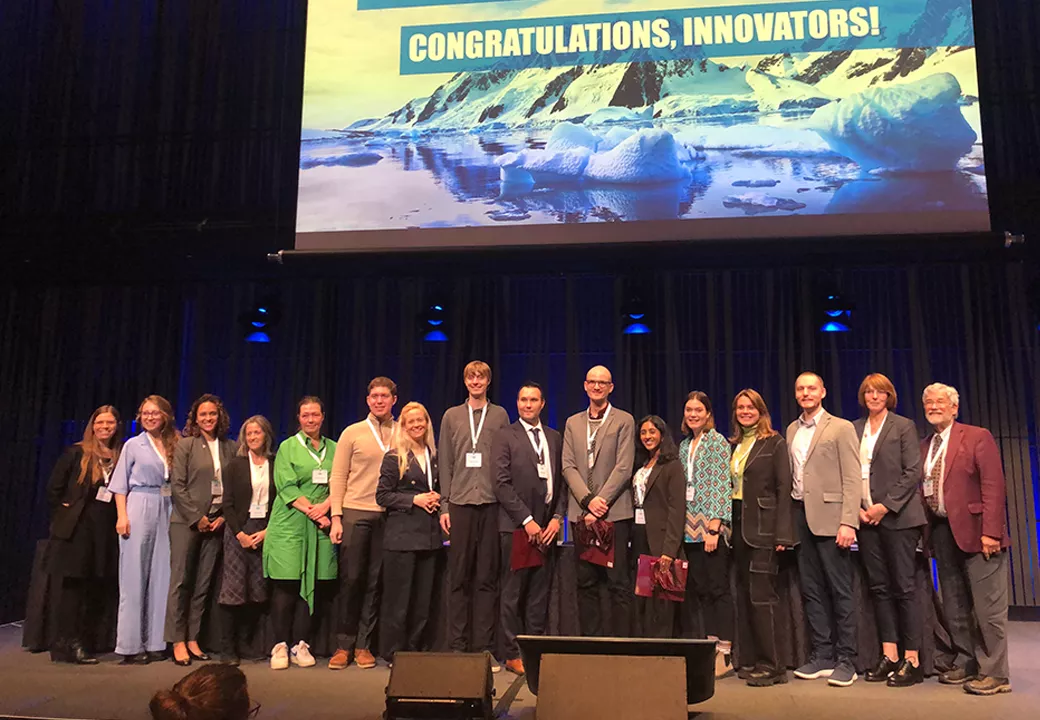
Emerging Leaders Unleash Creativity at Arctic Innovation Lab
Nine students from across the Arctic stress-tested their innovative solutions to pressing Arctic challenges during our Arctic Innovation Lab. Each student had just two minutes to present his or her pitch to an audience of policymakers, scientists, academics, and business leaders; the presentations were followed by round-table discussions with session attendees. The most promising solutions, as selected by our panel of judges and audience vote, are below.
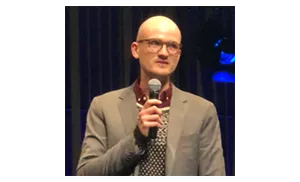
Stirling Haig, Harvard Kennedy School
Challenge: Small Arctic communities lack the resources and expertise to manage climate adaptation planning. Solution: An Arctic adaptation clearinghouse could collect and disseminate examples of successful rules, regulations, and practices for local policymakers and communities.
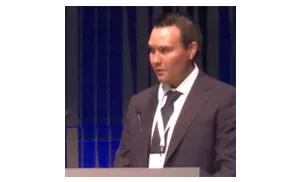
Blaine Mirasty, Assocation of Polar Early Career Scientists
Challenge: Job opportunities for youth are limited in Canada’s fast-growing northern Indigenous communities. Solution: Pilot a creative lab space in Canoe Lake Cree Nation to provide workforce skills development tailored to emerging industries.
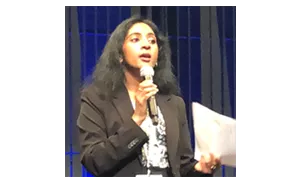
Piyusha Mittal, Tufts Fletcher School
Challenge: Russia’s control over the Northern Sea Route threatens freedom of navigation in the Arctic. Solution: Establish a coalition of Arctic and non-Arctic states under the Arctic Council to protect access to Arctic shipping lanes.
Gallery
More News from the Arctic Initiative
Our annual Year In Review highlights notable activities undertaken by our faculty, fellows, students, and staff throughout the academic year.
The 2022-2023 edition features our efforts to chart a course for working-level cooperation in the Arctic, to advise U.S. federal agencies on responses to permafrost thaw, and to help train the next generation of Arctic experts through programs like the Arctic Innovation Lab and workshops for Indigenous youth leaders.
Hanlon, Elizabeth. “Arctic Initiative Highlights from the 2023 Arctic Circle Assembly.” Belfer Center for Science and International Affairs, Harvard Kennedy School, October 25, 2023

